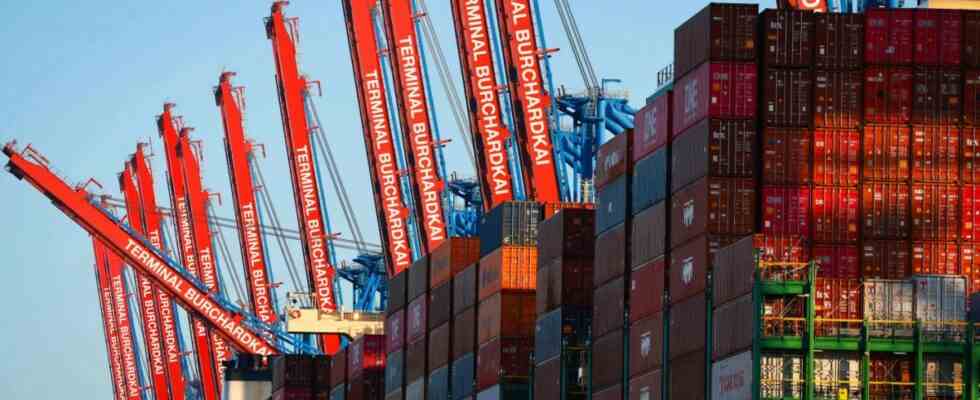The German economy did not grow in the spring. The gross domestic product stagnated between April and June compared to the previous quarter, as the Federal Statistical Office announced on Friday based on preliminary figures.
Economists had expected growth of 0.1 percent. At the beginning of the year, however, the economy was doing better than expected: Destatis revised the increase in GDP for the first quarter to 0.8 percent from the 0.2 percent initially mentioned.
The difficult global economic conditions with the corona pandemic, disrupted supply chains, rising prices and the war in Ukraine are clearly reflected in the economy, explains the Wiesbaden authority. Accordingly, the economy was mainly supported by private and government consumer spending, while the trade balance dampened economic growth.
The Ukraine war exacerbated problems that were already troubling the German economy. Rising energy prices and persistent supply bottlenecks are burdening the industry. At the same time, the highest inflation in decades is slowing down private consumption, which is an important pillar of the German economy.
According to the Nuremberg Society for Consumer Research (GfK), the spending behavior of people in Germany has changed noticeably. They are now saving even on groceries or personal care products. At the same time, the mood in companies has deteriorated significantly. The Ifo business climate index, for which around 9,000 companies assess their current business situation and expectations for the next six months, fell in July to its lowest level in over two years.
“Germany is on the threshold of recession,” says Ifo President Clemens Fuest. Commerzbank chief economist Jörg Krämer assumes that the German economy is already in a downturn. How bad things get in the end is primarily in the hands of Russia’s President Vladimir Putin. “If gas supplies stopped completely, a deep recession would be unavoidable,” says Kramer.
According to estimates by the EU Commission, Europe’s largest economy is expected to grow by just 1.4 percent this year. The International Monetary Fund expects economic growth of just 1.2 percent for the year as a whole.
The number of unemployed is also increasing: in July it rose by 107,000 to 2.47 million. The main reason for this is the further recording of Ukrainian refugees in the labor market statistics, as reported by the Federal Employment Agency. Compared to July 2021, the number of unemployed fell by 120,000. The unemployment rate was 5.4 percent, up 0.2 points from June. So the crisis has not yet really hit the labor market.

